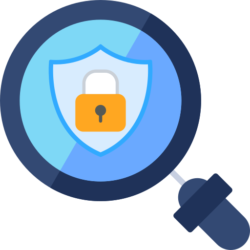One of the most important steps that businesses can take to protect themselves from cyber threats is to conduct regular cybersecurity audit. Cybersecurity audits are a systematic assessment of an organization’s information security posture. They identify vulnerabilities and weaknesses in an organization’s security controls, and they provide recommendations for how to improve security.
There are two main types of cybersecurity audits: internal audits and external audits. Internal audits are conducted by the organization’s own IT or security team, while external audits are conducted by a third-party firm. Both types of audits can be valuable, but external audits can provide a more objective and comprehensive assessment of an organization’s security posture.
What is a Cybersecurity Audit?
A cybersecurity audit is a systematic and comprehensive evaluation of an organization’s information systems, network infrastructure, security policies, and procedures to assess their effectiveness in protecting against cyber threats. The audit identifies vulnerabilities, potential risks, and any existing security gaps that may expose the organization to cyber attacks. By conducting a cybersecurity audit, businesses can proactively address weaknesses and strengthen their defenses to prevent data breaches, unauthorized access, and other cyber incidents.
The Process of Conducting a Cybersecurity Audit
- Risk Assessment: Identifying and assessing potential security risks and threats faced by the organization.
- Vulnerability Assessment: Scanning and testing the IT systems and network for vulnerabilities that could be exploited by attackers.
- Policy and Compliance Evaluation: Review the organization’s security policies, procedures, and practices to ensure they align with industry standards and regulatory requirements.
- Security Controls Review: Evaluating the effectiveness of security measures and controls in place, such as firewalls, antivirus software, access controls, etc.
- Incident Response Testing: Assessing the organization’s preparedness to handle and respond to security incidents.
How frequently should you conduct cybersecurity audits to ensure robust cybersecurity?
Ensuring cybersecurity is an ongoing process, and conducting regular audits is crucial to maintain robust protection against ever-evolving threats. Apart from annual or periodic audits, consider the following factors when determining the frequency of cybersecurity audits:
– Significant Organizational Changes: Any significant changes in your organization’s infrastructure, such as mergers, acquisitions, or expansion, may warrant an immediate audit to assess and address new vulnerabilities.
– Security Incidents: If your organization experiences a cybersecurity incident, it is essential to conduct an audit promptly to identify the root cause and prevent similar incidents in the future.
– New Technologies or Software: The adoption of new technologies or software may introduce unforeseen security risks. Audits should be conducted whenever significant technological changes occur.
– Compliance Requirements: Industries with strict compliance regulations may need more frequent audits to meet regulatory requirements.
Recommended Best Practices to Perform Cyber Security Audits
– Establish Clear Objectives: Before conducting a cybersecurity audit, clearly define the objectives and scope of the assessment. Identify the specific areas you wish to evaluate and the desired outcomes of the audit. Having well-defined objectives will ensure a focused and targeted assessment.
– Conduct Risk Assessment: Perform a thorough risk assessment to identify potential threats and vulnerabilities. Assess the impact of various risks on your organization’s operations and prioritize areas that require immediate attention.
– Review Security Policies and Procedures: Evaluate your organization’s security policies and procedures to ensure they align with industry best practices and compliance requirements. Identify any gaps or areas that need improvement.
– Perform Technical Assessments: Conduct technical assessments such as vulnerability scanning and penetration testing to identify weaknesses in your IT infrastructure and applications. These assessments help identify potential entry points for cyber attackers.
– Review Security Incident Logs: Analyze your organization’s security incident logs to identify any patterns of unauthorized access or suspicious activities. Reviewing logs can help detect potential breaches or ongoing attacks.
– Document Findings and Recommendations: Document all audit findings, including identified vulnerabilities and recommended remediation steps. This documentation forms the basis for creating an action plan to address security gaps.

If you are a business owner or IT professional, I urge you to consider conducting a cybersecurity audit for your organization. It is a valuable investment that can yield substantial returns in the long term.
FAQs
- Q: How long does a cybersecurity audit typically take?
A: The duration of a cybersecurity audit depends on the size and complexity of your organization’s IT infrastructure. It can range from a few days to several weeks.
- Q: What qualifications should a cybersecurity auditor possess?
A: A cybersecurity auditor should have relevant industry certifications such as CISS.
Ready to fortify your digital assets? Discover unmatched protection through our top-tier OEM Firewalls. Uncover vulnerabilities with expert audits, and let us pave your way to robust cybersecurity and network consulting. Click now for ultimate security:

